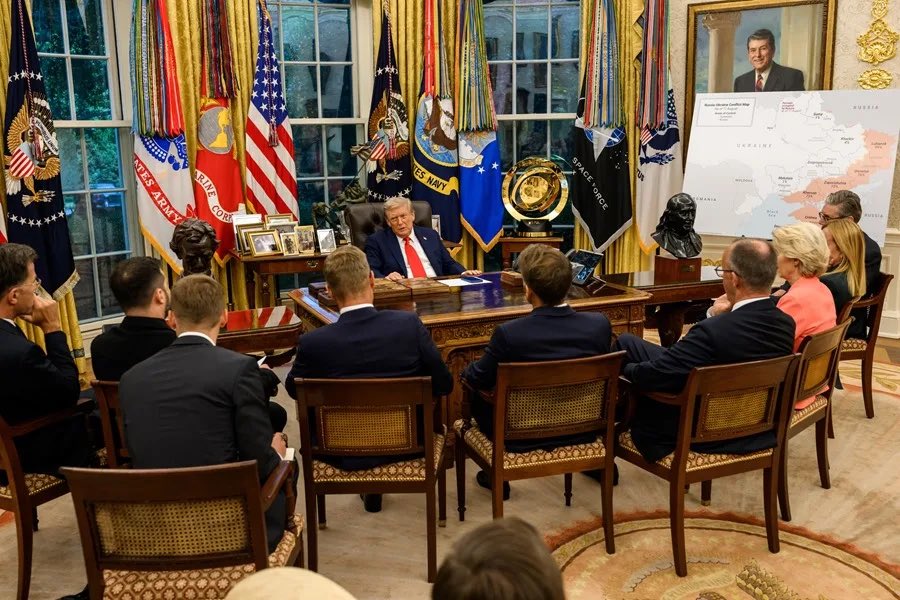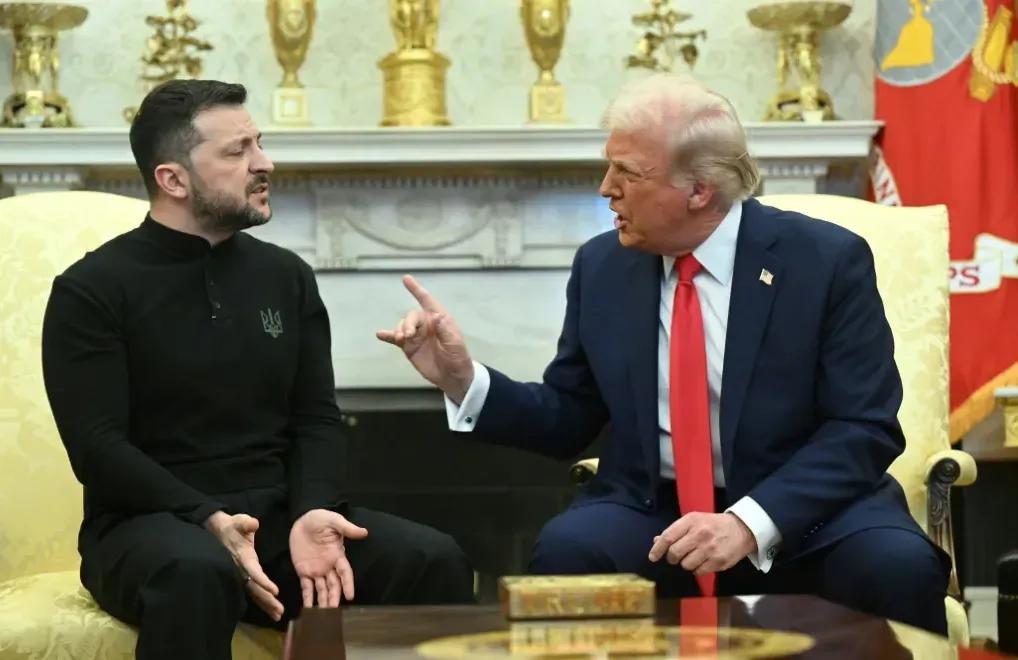Source: afp_tickers
Zelensky in Brussels: between the search for support and the admission of weakness
Ukrainian President Volodymyr Zelensky arrived in Brussels this Wednesday, where he held meetings with NATO Secretary General Mark Rutte and several European leaders in search of enhanced military backing in the face of increasing pressure from Russian forces on the eastern front.
The visit comes at a time when Kiev is intensifying its diplomatic offensive to ensure a steady flow of arms and financial assistance. The war, which has already lasted over two years, has entered a phase marked by escalating Russian missile and drone attacks against Ukrainian cities and critical infrastructure.

After the historic photo of European countries facing Donald Trump, a symbol of unity in times of transatlantic tension, and the recent summit in Alaska, Rutte opted for caution. The head of the Alliance refrained from specifying a timeline for the start of possible peace talks or the eventual involvement of European peacekeeping forces in Ukrainian territory. As he explained, doing so would give political leverage to Moscow and weaken the negotiating position of the West.
On Tuesday, on the eve of his arrival in Brussels, Zelensky hinted at his desperation by insisting on the urgency of more extensive and sophisticated military aid. “We must do everything possible to destroy Russia's capacity to wage war from as far away as possible,” he stated. In this regard, he requested more drones, modern artillery, and long-range missiles, as well as advanced air defense systems capable of countering the bombings affecting both the civilian population and the country’s energy infrastructure.
After his stop in Brussels, Ukrainian President Volodymyr Zelensky expressed an unusually pessimistic tone regarding his country's situation. In statements to a French media outlet, he admitted that Ukraine currently does not have the military strength necessary to reclaim all the territories occupied by Russia since 2014.
“Legally, we cannot cede our territories. This is prohibited by the Constitution,” the president argued, before qualifying it with a confession loaded with realism: “But let’s not use grandiloquent words. Russia controls part of our territory today.”
The admission, which breaks with the firm stance Zelensky had maintained in international forums, reveals the weariness after more than two years of war and the difficulty of sustaining the narrative of a total victory. At a time when Kiev is multiplying its requests for military and financial aid from Western allies, the message sounded like an implicit acknowledgment that the available resources are insufficient to reverse the occupation.
The contrast with his previous rhetoric is striking. While in Brussels he demanded more drones, modern artillery, and air defense systems, before the European press, he hinted that the resistance is facing clear limits. The image of a president who no longer only asks for support but publicly admits the insufficiency of his own army projects vulnerability both internally and externally in Ukraine.
Zelensky's words come at a delicate moment: on one hand, they reinforce the urgency for international assistance. On the other hand, they fuel doubts about how far Kiev will be able to uphold the promise of reclaiming all lost territory.

Comments